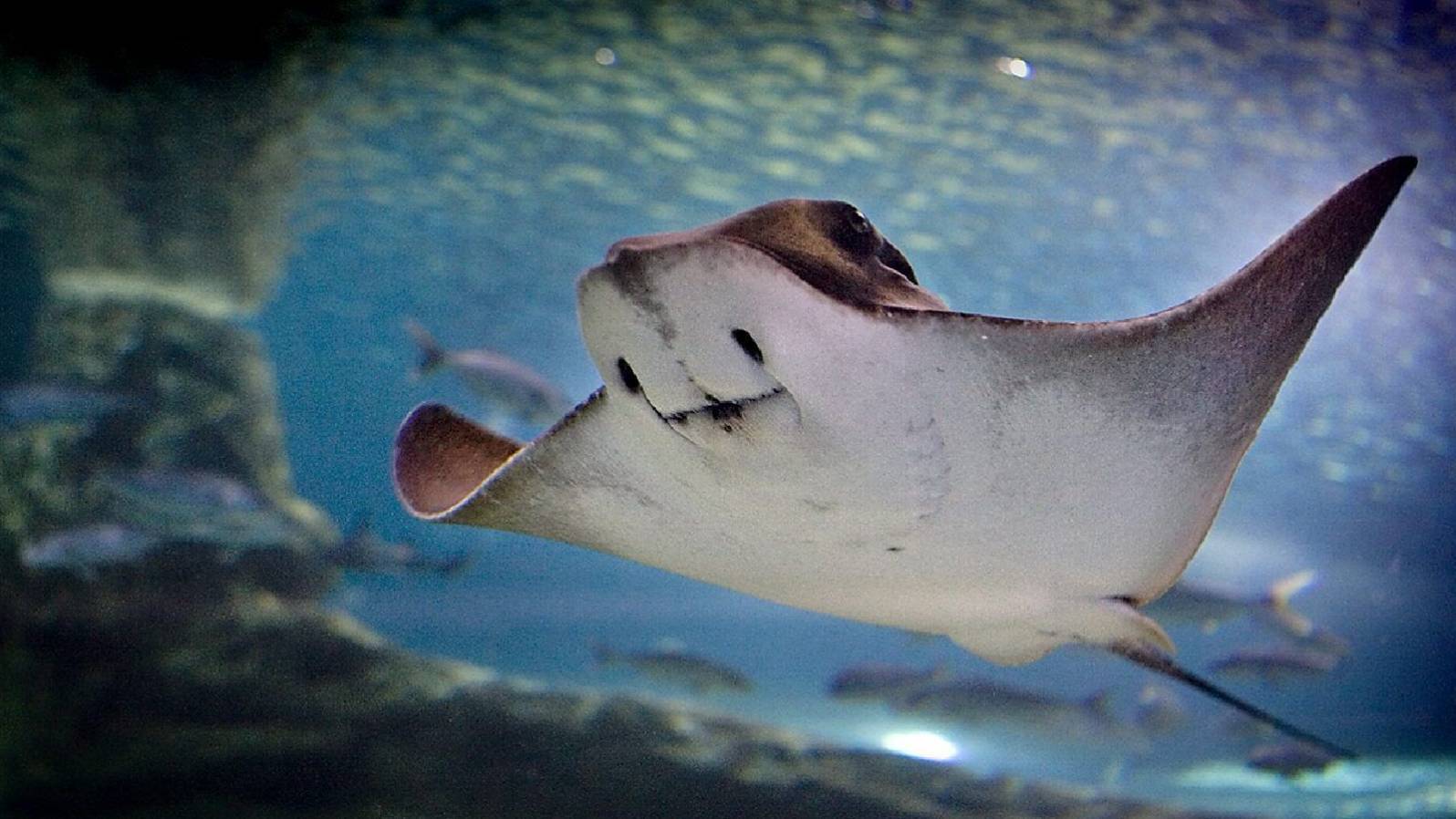Stingrays in Mexico: Species, Habitats, and Places to Spot Them

Discover the diversity of stingrays in Mexico, the best places to spot them, and the importance of their conservation in our new blog.
Explore this information with AI
Mexico is a country rich in marine biodiversity, and stingrays are one of the most fascinating groups of animals found along its coasts. With their flattened bodies and uniquely graceful movements, stingrays are a major attraction for marine life enthusiasts. In this blog, we’ll explore the various species of stingrays found in Mexico, the best places to spot them, and why their protection is essential.
Stingray Diversity in Mexico
There is a wide variety of stingrays and manta rays in Mexico, inhabiting both coastal waters and deeper marine environments. From the most common species to rarer and endemic ones, Mexican waters offer a perfect setting for studying and observing these fascinating animals. In addition to their beauty, stingrays play a vital role in maintaining the balance of marine ecosystems by feeding on small invertebrates and controlling populations of other species.
Most Common Stingray Species in Mexico
Southern Stingray (Hypanus americanus)
One of the most common species along Mexico’s coasts is the Southern Stingray, known for its broad pectoral fins and venomous spine on its tail, which it uses for self-defense. Its typical habitat is shallow coastal waters, especially around the Yucatán Peninsula and the Riviera Maya.
.jpg?width=1596&height=898&name=Raya%20de%20Espina%20(Dasyatis%20spp.).jpg)
Manta Ray (Manta birostris)
The manta ray is known for its enormous size and the distinctive shape of its fins. It can reach up to 7 meters (23 feet) in wingspan. It is commonly found in open waters, especially in nutrient-rich areas like Cabo Pulmo, where they can be spotted year-round.
%20(1).jpg?width=1596&height=898&name=Raya%20Manta%20(Manta%20birostris)%20(1).jpg)
Spotted Eagle Ray (Aetobatus narinari)
This species is famous for its wing-shaped fins that resemble an eagle’s wings. It is mainly found along the Gulf of Mexico coast and near coral reef areas. It’s particularly common in spots like Isla Holbox and Cozumel.
%20(1).jpg?width=1596&height=898&name=Raya%20%C3%81guile%C3%B1a%20(Aetobatus%20narinari)%20(1).jpg)
Bat Ray (Myliobatis goodei)
The bat ray is medium-sized and known for its swift movements and excellent maneuverability. It is often found in deeper waters and nearshore areas, such as Puerto Morelos and Bahía de la Ascensión.
.jpg?width=1596&height=898&name=Raya%20Batidora%20(Myliobatis%20goodei).jpg)
Where to Spot Stingrays in Mexico?
Ocean and Beaches
Mexico is home to some of the best locations for spotting rays, both in coastal waters and deeper marine habitats. Top places to see rays in the wild include:
- Riviera Maya: With its rich marine biodiversity, the Riviera Maya coastline is home to species like manta rays and Southern Stingray. Visitors can see them while snorkeling or diving in places such as Puerto Morelos and Cozumel.
- Isla Holbox: Known for its abundant marine life, Holbox is a popular spot to see stingrays in shallow waters.
- Cabo Pulmo: In this National Park, manta rays are frequently spotted, especially during migration months.
Lagoons and Coastal Areas
Beyond reefs and open waters, stingrays also thrive in shallow lagoons and coastal zones where they feel more at ease. Some great locations include:
- Laguna de Términos, Campeche: A unique ecosystem home to stingray species that feed on small invertebrates and fish.
- Bahía de la Ascensión, Quintana Roo: This bay is a great place to see bat rays and Southern Stingray.
Aquariums and Conservation Centers
For those who prefer not to dive into the sea, there are aquariums and marine centers where stingrays can be observed in a controlled environment:
- Interactive Aquarium Cancun: Here, visitors can learn about local stingrays and even participate in activities like swimming with them, creating an educational and conservation-focused experience.
Tips for Stingray Watching
- Diving and Snorkeling: If you plan to snorkel or dive to see rays, make sure to go with experienced guides who know the best locations and how to interact safely with stingrays.
- Respect Their Space: Stingrays are sensitive animals, so it’s important to maintain a respectful distance to avoid disturbing them or compromising others’ experiences.
- Check the Season: Some stingray species, such as manta rays, have seasonal migration patterns. Research the best time to observe them in your chosen destination.
Stingray Conservation Matters
Stingrays are essential to the ecological balance of marine ecosystems, but many species are endangered due to illegal fishing, pollution, and habitat destruction. Protecting stingrays is not only vital for biodiversity but also for the local economies that rely on marine-based tourism. Conservation initiatives, such as those promoted by the Interactive Aquarium Cancun and other marine centers, help raise awareness about the importance of protecting these incredible creatures.
Mexico is a privileged destination for seeing stingrays in their natural habitat. From the Caribbean coast to the deep waters of national parks, rays offer a unique experience of connection with nature. As we explore these habitats and admire their beauty, it’s also important to remember the need to protect them. By focusing on conservation and showing respect for these animals, we can all contribute to preserving Mexico’s marine biodiversity.




